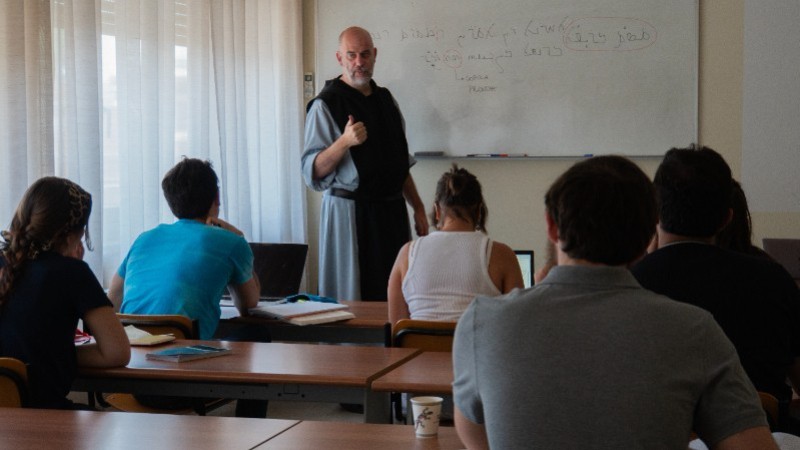
From July 7 to 18, 2025, the first edition of the Summer School on Languages of the Christian East was held at the Faculty of Christian and Classical Letters (FLCC), in collaboration with the Italian Association for Syriac Studies, Syriaca. This initiative emerged as a natural continuation of the Summer School of Syriac Language and Literature held in July 2024 at the campus of the Salesian Pontifical University. The success of the first edition encouraged organizers to expand the academic offerings, this year including other languages of the Eastern Christian area.
Academic Direction was entrusted to Marco Pavan (Roma Tre University) and Roberto Fusco (FLCC), with Giovanni Gomiero (Ghent University) coordinating activities, supported by an Organizational Committee composed of Michael David Ethington (University of Lille), Adele Nannetti (University of Pisa), and Mara Nicosia (University of Padua). Crucial was the contribution of the instructors who shared their experience and expertise: Emilio Bonfiglio (Armenian, University of Hamburg), Isabella Maurizio (Hebrew I, Sorbonne University), Giorgia Nicosia (Syriac I, Ghent University) and Marco Pavan (Syriac II, Roma Tre).
The Summer School was designed to offer students, researchers, and faculty a unique opportunity to approach or deepen their study of languages historically used by Christian communities spread across a vast area—including the Eastern Mediterranean, the Middle East, Iran, the Caucasus, Central Asia, the Arabian Peninsula, and the Horn of Africa. Particular attention was given to the rich literary traditions conveyed by these languages, often still underexplored. From this perspective, the inclusion of a course on Hebrew language and literature—although not strictly part of Eastern Christianity—was a significant enrichment given its historical and cultural relevance in the broader context.
Around thirty students participated, five of whom attended online, from various Italian and international universities with diverse academic backgrounds and interests. The program featured language courses, joint seminars, and afternoon roundtables involving more than 35 professors and scholars. Topics ranged from the Bible in the Christian East to literary translations, historiography to epigraphy, and legal to hagiographic production.
Specific seminars offerings were particularly rich, covering subjects such as the transmission of philosophical thought in Syriac, the East Syrian school system, Armenian translations, the development of Georgian literature, the Dead Sea Scrolls, and Jewish mysticism.
Beyond academic value, the School fostered the emergence of a vibrant scholarly community. The shared spaces between students and professors encouraged open dialogue and collaboration, helping create a fertile environment for exchange and research.